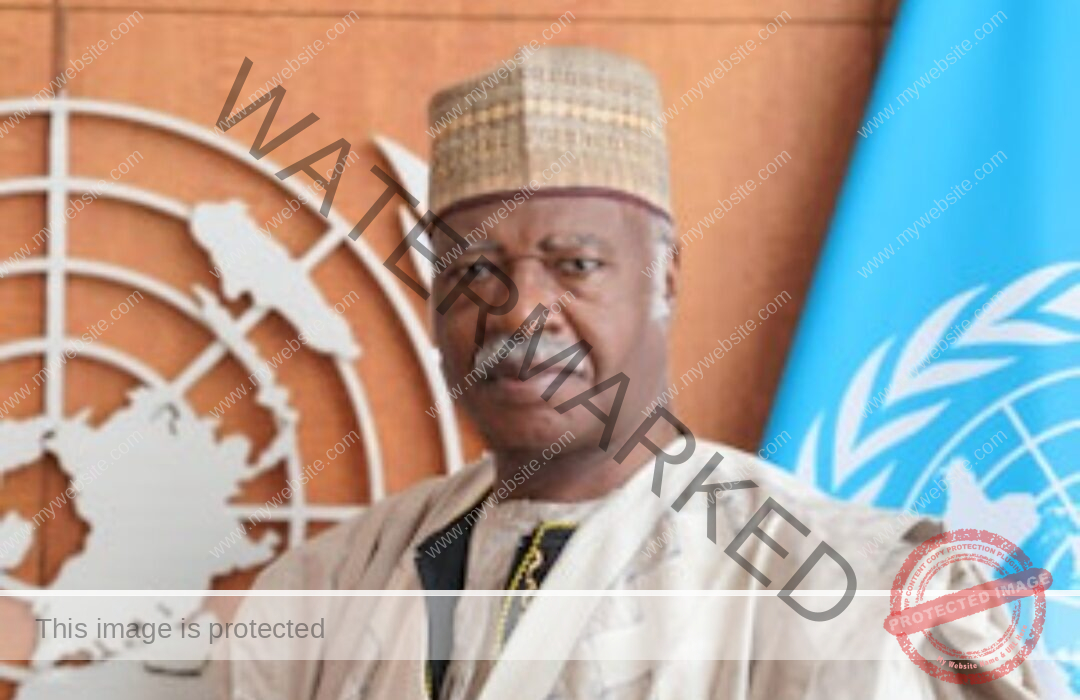According to insiders from within the CPDM’s Northwest coordination — many of whom are now breaking ranks — Yang allegedly supervised maneuvers to massively falsify results in Ambazonia’s war-torn Northwest, a region long characterized by low voter turnout due to the Ambazonian resistance’s “dead city” policy.
Ali Dan Ismael in Bamenda with field reports.
Bamenda / Yaoundé — October 2025
As Cameroonians absorb the shock of the October 12 presidential election, popular outrage is intensifying over what many are calling the biggest electoral masquerade in the country’s history. At the center of the storm is none other than Philemon Yang, former Prime Minister and former President of the United Nations General Assembly, now accused of orchestrating large-scale electoral fraud in the Northwest Region to salvage Paul Biya’s collapsing candidacy.
A NIGHT OF ELECTORAL MANIPULATION
According to insiders from within the CPDM’s Northwest coordination — many of whom are now breaking ranks — Yang allegedly supervised maneuvers to massively falsify results in Ambazonia’s war-torn Northwest, a region long characterized by low voter turnout due to the Ambazonian resistance’s “dead city” policy.
Initial vote counts from hundreds of polling stations, circulating on social media on the evening of October 12, showed Issa Tchiroma Bakary emerging as the unexpected frontrunner, widening the gap with Paul Biya. Panic quickly gripped the ruling party. Within hours, party operatives, in collusion with ELECAM, turned to the Northwest and Southwest — regions with historically low turnout — as “electoral reservoirs” to manufacture the numbers needed to “absorb the Tchiroma shock.”
SOVIET-STYLE FIGURES OVERNIGHT
Political elites including Fai Yengo Francis, Fuh Calistus Gentry, Ngala Gerard, Njimgum Musa, and Mbah Aicha allegedly spearheaded a coordinated overnight operation to stuff ballot boxes and falsify procès-verbaux (PV). By dawn on October 13, CPDM’s internal sheets attributed tens of thousands of votes to Paul Biya, including in localities where the administration itself had acknowledged fewer than 200 registered voters.
In Momo Division, largely depopulated by the conflict, Biya reportedly secured over 13,000 votes versus less than 300 for all other candidates combined.
In Bui, Donga Mantung, Ngoketunjia, and other divisions, phantom voters appeared by the thousands overnight.
These operations were exposed in a viral video showing individuals wearing ELECAM chasubles stuffing envelopes with CPDM ballots and applying fingerprints to electoral registers in the dead of night.
INTERNAL REVOLT AND RESIGNATIONS
A particularly striking reaction came from Maurice Tibam, a CPDM leader in Boyo Division, whose resignation letter denounced the “magical transformation” of vote tallies. He described the exercise as “the demolition of democracy” and “a theatre of lies.”
In Njinikom, for example, a handful of votes counted locally were reported as over 2,500 on the ELECAM PV. Tibam’s letter, now circulating widely, has emboldened other party officials to speak out.
PHILEMON YANG’S ROLE AND CONTRADICTIONS
As Northwest campaign coordinator, Philemon Yang reportedly received and validated all the manufactured results sheets, signed by local political collaborators. His direct oversight clashes sharply with the international image he projected just a year ago in New York, where he presided over the UN General Assembly (2024–2025) and spoke solemnly about the “alarming decline in human rights” and the need to build “a world of peace and justice.”
Observers now question how a man who championed democratic values on the global stage could return home to oversee the subversion of his own people’s vote.
POSSIBLE MOTIVES: A VICE PRESIDENCY IN SIGHT?
Political analysts in Yaoundé point to May 2025 rumors suggesting Biya’s entourage was contemplating a constitutional amendment to introduce a vice-presidency. In that scenario, Philemon Yang, loyal and internationally seasoned, could have been groomed as Paul Biya’s running mate or successor, should the regime engineer another “victory.”
However, this calculation overlooked the massive popular backlash that erupted immediately after the elections, particularly in the Northwest and major cities, where the scale of fraud was too blatant to contain.
A REGIME ON THE EDGE
The 2025 election has shaken the foundations of Cameroon’s presidential monarchy, already under pressure from Paris’s shifting posture, the rise of Issa Tchiroma as a populist challenger, and growing Ambazonian defiance. If confirmed, Philemon Yang’s involvement marks a historic fall from grace for one of Cameroon’s most internationally respected figures — and exposes the desperation of a regime clinging to power at any cost.
Ali Dan Ismael editor in chief

